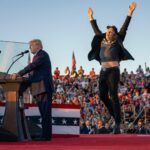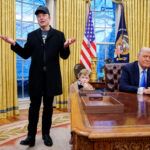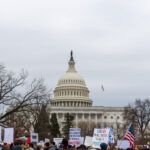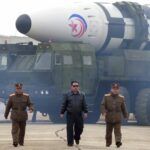Why is the J&J vaccine paused, and what does a pause mean?
By Matt Field | April 13, 2021
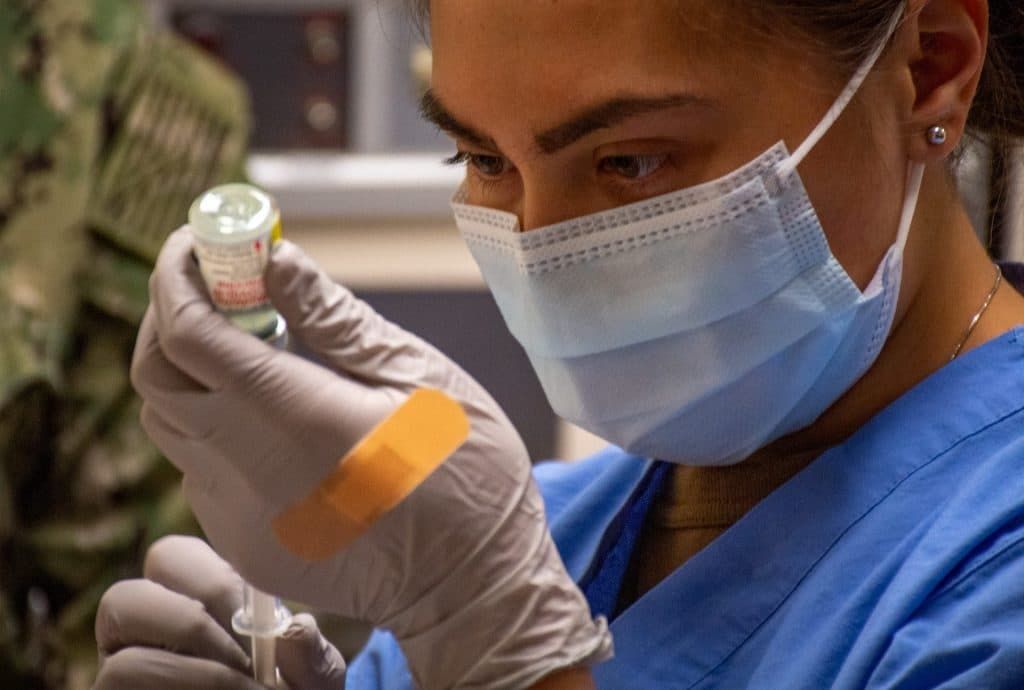 A health care worker prepares a COVID-19 vaccine. Credit US Navy. CC BY 2.0.
A health care worker prepares a COVID-19 vaccine. Credit US Navy. CC BY 2.0.
Amid a new wave of coronavirus infections, several health experts downplayed the news that the US government has recommended that states pause use of the Johnson & Johnson COVID-19 vaccine, stressing that only six of the 7 million people who’ve received the shot have reportedly developed serious blood clots. A government advisory panel is set to meet Wednesday to carve a path forward.
While the federal government hasn’t linked the blood clots in the patients who received the Johnson & Johnson shot to the vaccine, yet, European regulators have linked a COVID-19 vaccine produced by Oxford University and AstaZeneca to similar incidents. Both the vaccines use a harmless adenovirus as a vector to transmit the genetic code for the coronavirus spike protein into cells and initiate an immune response. Two other prominent vaccines, produced by Pfizer-BioNTech and Moderna, use different paths for inducing immunity.
Some health experts expressed reservations about the government’s pause. Eric Topol, a professor of molecular medicine at Scripps Research wrote that refining the guidelines would have been a better move. “We knew about 4 such cases on Friday, April 9th … Not sure why 2 more have induced a pause in using the vaccine for < 1/million as it will inevitably proceed,” he tweeted Tuesday, “Better is to provide refined guideline for its use (demographics) and management.”
We knew about 4 such cases on Friday, April 9thhttps://t.co/1hdkVS8Z3q
Not sure why 2 more have induced a pause in using the vaccine for <1/million as it will inevitably proceed. Better is to provide refined guideline for its use (demographics) and management.— Eric Topol (@EricTopol) April 13, 2021
Although the Centers for Disease Control and Prevention and the Food and Drug Administration framed their joint announcement as a “pause,” the word doesn’t seem to quite capture the potential implications of the news. If the pause leads to skepticism of the Johnson & Johnson vaccine, as the decisions by European countries in March to pause use of the Oxford-AstraZeneca vaccine appears to have done, the US effort to reach herd immunity could face further obstacles. A poll in March showed more than half of people in Germany, France, and Spain think the Oxford-AstraZeneca vaccine is unsafe.
Zeynep Tufecki, who’s written extensively on the pandemic for The Atlantic and other outlets, questioned why the government advisory panel wasn’t meeting sooner. “Given the dramatic and—let’s be honest—irreversible consequences of the announcement of a J&J pause, why aren’t we set up to have had ACIP (the Advisory Committee on Immunization Practices) already convene last night? I’m for investigating everything, even this rare (6 out of 7 million), but we should be set up for this by now.”
Given the dramatic and— let's be honest—irreversible consequences of the announcement of a J&J pause, why aren't we set up to have had ACIP already convene last night? I'm for investigating everything, even this rare (6 out of 7 million), but we should be set up for this by now. https://t.co/pk1JSvBfpP
— zeynep tufekci (@zeynep) April 13, 2021
Other health experts have accepted the pause while the government investigates, but have stressed that the blood clots were reported in only a very small number of people out of the millions who’ve safely received the Johnson & Johnson shot. “We have administered nearly 200M doses to more than 120 million Americans,” Ashish Jha, the dean of the Brown University School of Public Health, tweeted Tuesday. “Nearly all, like me, have done incredibly well. These vaccines are very safe. A short pause (days) to develop a plan around these rare J&J events is pretty reasonable.”
We have administered nearly 200M doses to more than 120 million Americans
Nearly all, like me, have done incredibly well
These vaccines are very safe
A short pause (days) to develop a plan around these rare J&J events is pretty reasonable
— Ashish K. Jha, MD, MPH (@ashishkjha) April 13, 2021
When the Food and Drug Administration authorized the Johnson and Johnson shot in February, it was expected to play a significant role in the US vaccination campaign. But from the get-go officials were concerned that because clinical trials showed it has a slightly lower efficacy than Pfizer-BioNTech or Moderna’s vaccines, the Johnson & Johnson shot would be viewed as second-tier. That perception, some worried, might complicate vaccination efforts, particularly in minority communities where surveys have shown worrisome levels of vaccine hesitancy. Indeed, the mayor of Detroit, a city with a large Black population, at one point turned down an allotment of the Johnson & Johnson vaccine, saying he wanted “the best” for his constituents. Mayor Mike Duggan later reversed himself. All the authorized COVID-19 vaccines are considered highly effective in preventing severe disease.
Amid a third wave of coronavirus cases, the pause in Johnson & Johnson vaccinations is already affecting US vaccination efforts. Officials canceled vaccine events and rescheduled appointments in the Chicago area Tuesday, as the state heeded the federal government’s recommendations. Chicago Department of Public Health Commissioner Allison Arwady said she expected the pause to slow the vaccination drive. “This is a hit, no doubt about it. The timing is bad,” she said, according to PBS–affiliate WTTW reporter Heather Cherone.
Another casualty of the J&J pause — an event set for today that would have vaccinated restaurant workers, Arwady says.
"This is a hit, no doubt about it," Arwady says. "The timing is bad."
The state opened eligibility to all Illinois yesterday; Chicago will follow Monday.
— Heather Cherone (@HeatherCherone) April 13, 2021
Together, we make the world safer.
The Bulletin elevates expert voices above the noise. But as an independent nonprofit organization, our operations depend on the support of readers like you. Help us continue to deliver quality journalism that holds leaders accountable. Your support of our work at any level is important. In return, we promise our coverage will be understandable, influential, vigilant, solution-oriented, and fair-minded. Together we can make a difference.
Keywords: Coronavirus, Johnson & Johnson, vaccines
Topics: Analysis

